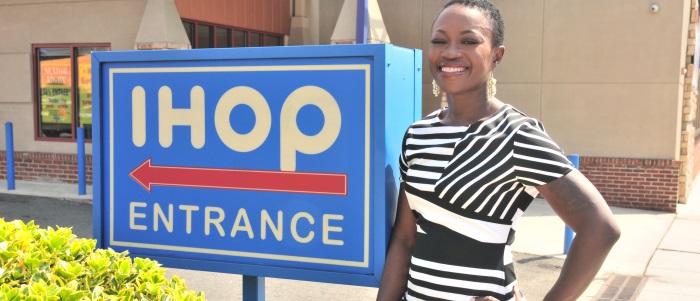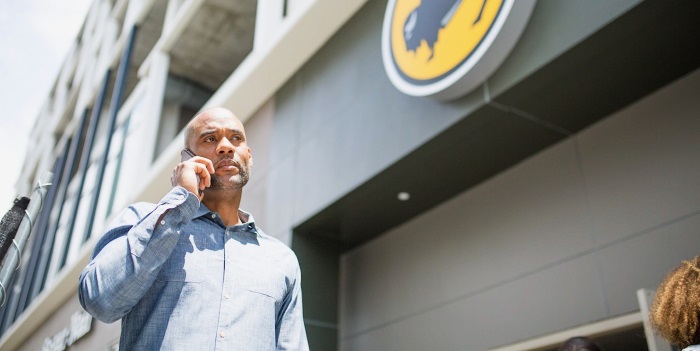Black franchisees offer financing advice to new operators

When seeking financing, make sure your documents are in order. Organization is key. Also, have a CFO or accountant as a second set of eyes to review your documents.
When it comes to financing a new restaurant business, securing funds is often difficult.
With pre-COVID-19 profit margins averaging just 3% to 6%, and the potential for failure poised at 20% in the first year alone, entrepreneurs can face challenges when seeking seed money to open their new businesses—whether they’re a new concept or a franchised unit of an already established brand.
If you’re a Black entrepreneur, the prospect of getting financed is even more daunting. According to Gerry Fernandez, co-founder and president of the Multicultural Foodservice & Hospitality Alliance, only 8% of Black people own their own restaurants.
“Even though the restaurant and foodservice industry is one of the most diverse in America, Black people are underrepresented in the ownership category,” he says. “Access to capital remains a significant barrier for individuals who want to own their own businesses.”
As we celebrate Black History Month, which honors the contributions of African-Americans who’ve helped shape and change our culture and our businesses, the Association asked two industry operators—Webb and Adenah Bayoh, an Irvington, N.J.-based IHOP franchisee and owner of the fast-casual concept Cornbread—for some tips on getting Black-owned restaurant businesses financed.

Bayoh, who got her first IHOP franchise at 27, said she used most of her own savings and was essentially bankrupt upon opening the store.
Be organized … and persistent
Bayoh, who fled civil war in Liberia at 13 to immigrate to the U.S., opened her first IHOP restaurant at the age of 27, after nearly three years of trying to get financing to start that store. She says the terms of her loan were terrible, noting that she had to use most of her own savings, and was essentially bankrupt upon opening.
“I had to use all of my equity, all of my savings,” she says. “That’s no way to start a business, but you know what? That’s what Black business owners face every day, especially Black women business owners.”
What advice would she give to minority franchisees today? After experiencing several years of success, Bayoh offers two important tips:
- Have everything organized; organization is key. Make sure your documents are in order. Also, make sure you have a CFO or accountant as a second set of eyes to review your documents.
- If you’ve been turned down by one bank, don’t take it as an end all, be all. Ask specific questions about why they said no and what you can do differently to get a yes.

 Webb advises potential restaurant owners to network and build relationships with banks and bankers.
Webb advises potential restaurant owners to network and build relationships with banks and bankers.
Epiphany leads to community activism and giving back
Webb says becoming a franchisee is the foundation of his income and platform. It allows him to focus on civic and community engagement. His epiphany—that he wasn’t just selling wings and beer but helping develop young people—was life-changing. He asserts that the chance to own a business provides the incentive to be the best, and that’s how communities improve, he says. He advises franchisees to network and build relationships with banks and bankers:
- If you’re not on a first-name basis with your banker, you’re doing yourself a disservice. In my experience, big banks—with underwriting departments far removed from the individual who originates your finance transaction—don’t serve the interests of small business owners in the same way smaller banks do.
- Go into a branch of a smaller, regional bank, and ask to speak with a business banker. Explain how important it is to establish a relationship with someone early in your business journey. Doing this will get the attention of the right banking partner. If the person isn't welcoming and patient, you’ll know that bank is not the right fit. Keep prospecting business bankers until you meet someone who seems genuinely curious about your business.